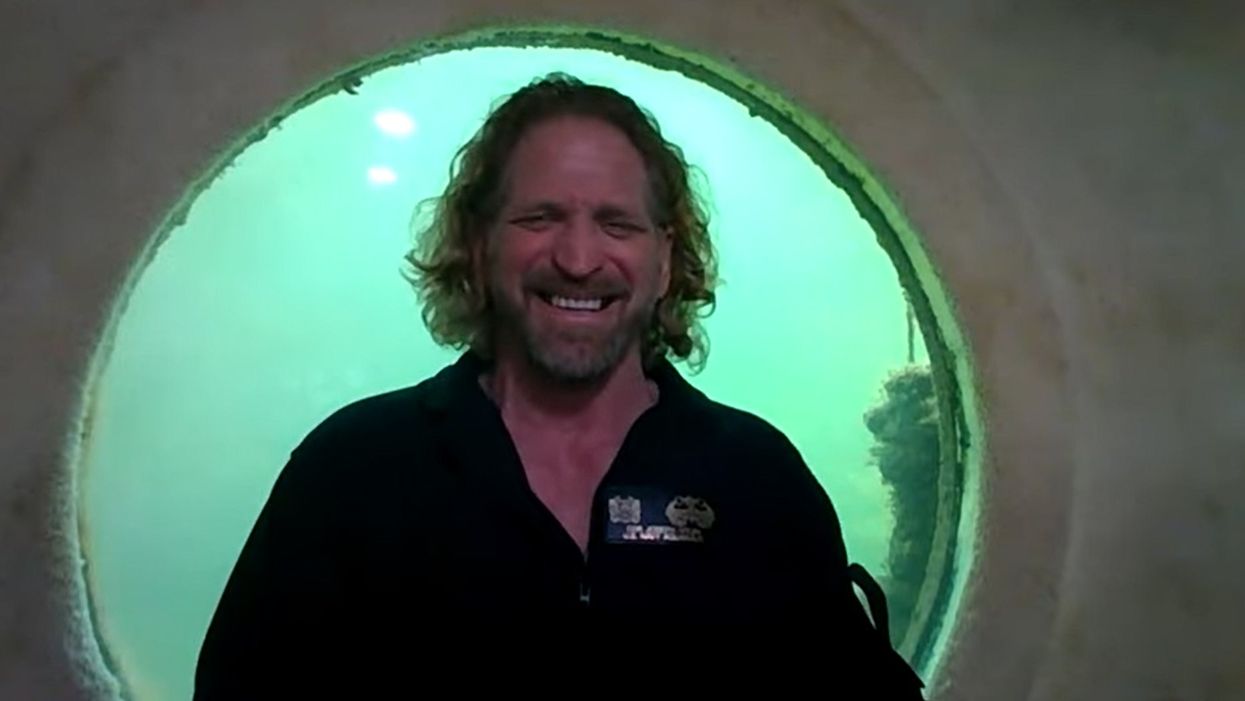
Image source: YouTube video, University of South Florida - Screenshot

Dituri, 55, is both scientist and test subject in the Marine Resources Development Foundation's Project Neptune 100. According to the MRDF, the ultimate purpose of the undersea mission, which began on March 1 and will run until June 9, is to "support marine research and conservation."
The so-called aquanaut is presently living in Jules' Undersea Lodge: an aquatic bunker set 30 feet deep in a mangrove lagoon, where the pressure is reportedly 1.6 times that pressure experienced at ground level.
The lodge boasts a "moon pool," where divers enter and exit, a bathroom, two bedrooms, and a wet room. In addition to a TV, the lodge, which usually serves as an aquatic hotel, has a microwave and WiFi.
Dituri, chief researcher for the Underseas Oxygen Clinic in Tampa, has been conducting experiments to study the effects of long-term exposure to pressure and other diving related medical issues.
For instance, Dituri seeks to advance conclusions found in a study that indicated cells exposed to increased pressure doubled within five days. If this proves to be the case, it may afford humans a way to increase their longevity and combat aging.
"So, we suspect I am going to come out superhuman!" said Dituri.
He indicated his biceps have already grown significantly since he went below the surface over one month ago.
A smaller version would be utilized by astronauts headed to Mars.
"Even somebody who is just barely medically trained can operate this and kind of figure out what's going on and what's wrong in the human body," said Dituri.
There is a deeply personal aspect to Dituri's scientific study.
"Many of my brothers and sisters in the military suffered traumatic brain injuries, and I wanted to learn how to help them," he said. "I knew well that hyperbaric pressure could increase cerebral blood flow and hypothesized it could be used to treat traumatic brain injuries. I hypothesize that applying the known mechanisms of action for hyperbaric medicine could be used to treat a broad spectrum of diseases."
"The human body has never been underwater that long, so I will be monitored closely," said in a press release. "This study will examine every way this journey impacts my body, but my null hypothesis is that there will be improvements to my health due to the increased pressure."
Media Availability: USF researcher attempts to set world record by living underwater for 100 daysyoutu.be
Like Blaze News? Bypass the censors, sign up for our newsletters, and get stories like this direct to your inbox. Sign up here!